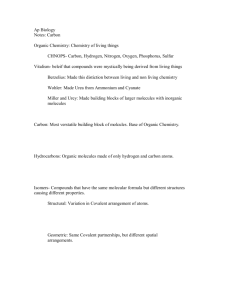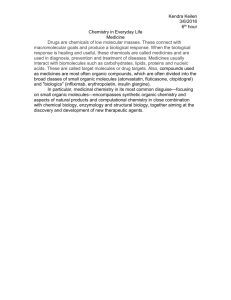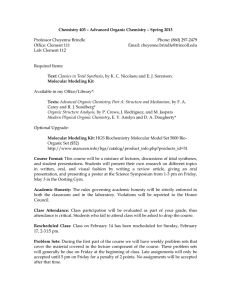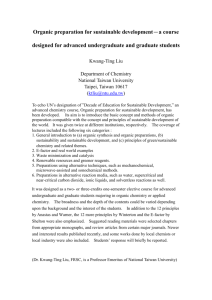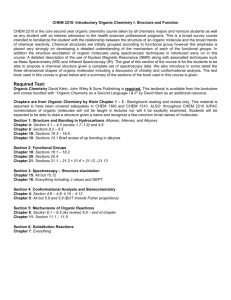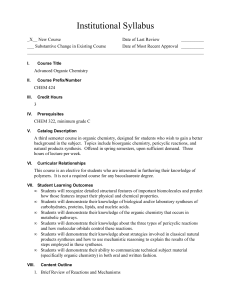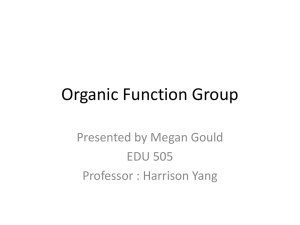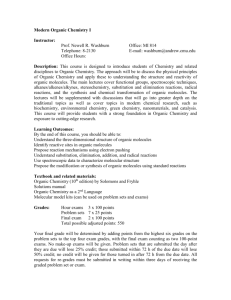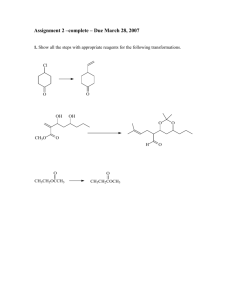Addendum
advertisement
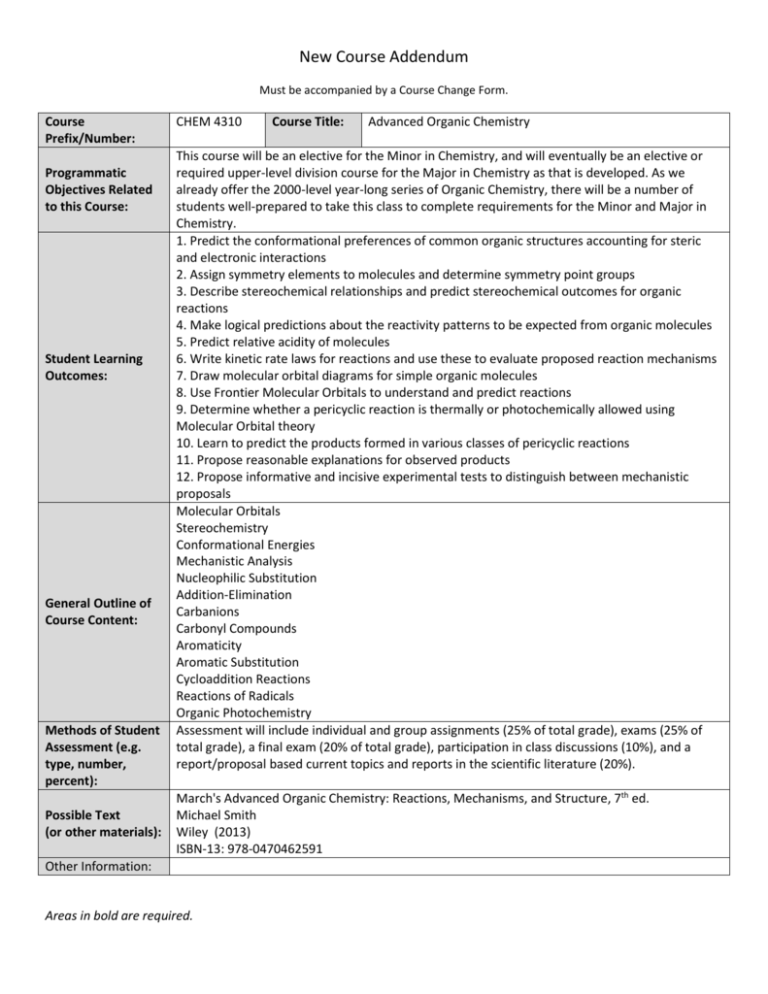
New Course Addendum Must be accompanied by a Course Change Form. Course Prefix/Number: Programmatic Objectives Related to this Course: Student Learning Outcomes: General Outline of Course Content: Methods of Student Assessment (e.g. type, number, percent): Possible Text (or other materials): CHEM 4310 Course Title: Advanced Organic Chemistry This course will be an elective for the Minor in Chemistry, and will eventually be an elective or required upper-level division course for the Major in Chemistry as that is developed. As we already offer the 2000-level year-long series of Organic Chemistry, there will be a number of students well-prepared to take this class to complete requirements for the Minor and Major in Chemistry. 1. Predict the conformational preferences of common organic structures accounting for steric and electronic interactions 2. Assign symmetry elements to molecules and determine symmetry point groups 3. Describe stereochemical relationships and predict stereochemical outcomes for organic reactions 4. Make logical predictions about the reactivity patterns to be expected from organic molecules 5. Predict relative acidity of molecules 6. Write kinetic rate laws for reactions and use these to evaluate proposed reaction mechanisms 7. Draw molecular orbital diagrams for simple organic molecules 8. Use Frontier Molecular Orbitals to understand and predict reactions 9. Determine whether a pericyclic reaction is thermally or photochemically allowed using Molecular Orbital theory 10. Learn to predict the products formed in various classes of pericyclic reactions 11. Propose reasonable explanations for observed products 12. Propose informative and incisive experimental tests to distinguish between mechanistic proposals Molecular Orbitals Stereochemistry Conformational Energies Mechanistic Analysis Nucleophilic Substitution Addition-Elimination Carbanions Carbonyl Compounds Aromaticity Aromatic Substitution Cycloaddition Reactions Reactions of Radicals Organic Photochemistry Assessment will include individual and group assignments (25% of total grade), exams (25% of total grade), a final exam (20% of total grade), participation in class discussions (10%), and a report/proposal based current topics and reports in the scientific literature (20%). March's Advanced Organic Chemistry: Reactions, Mechanisms, and Structure, 7th ed. Michael Smith Wiley (2013) ISBN-13: 978-0470462591 Other Information: Areas in bold are required.

